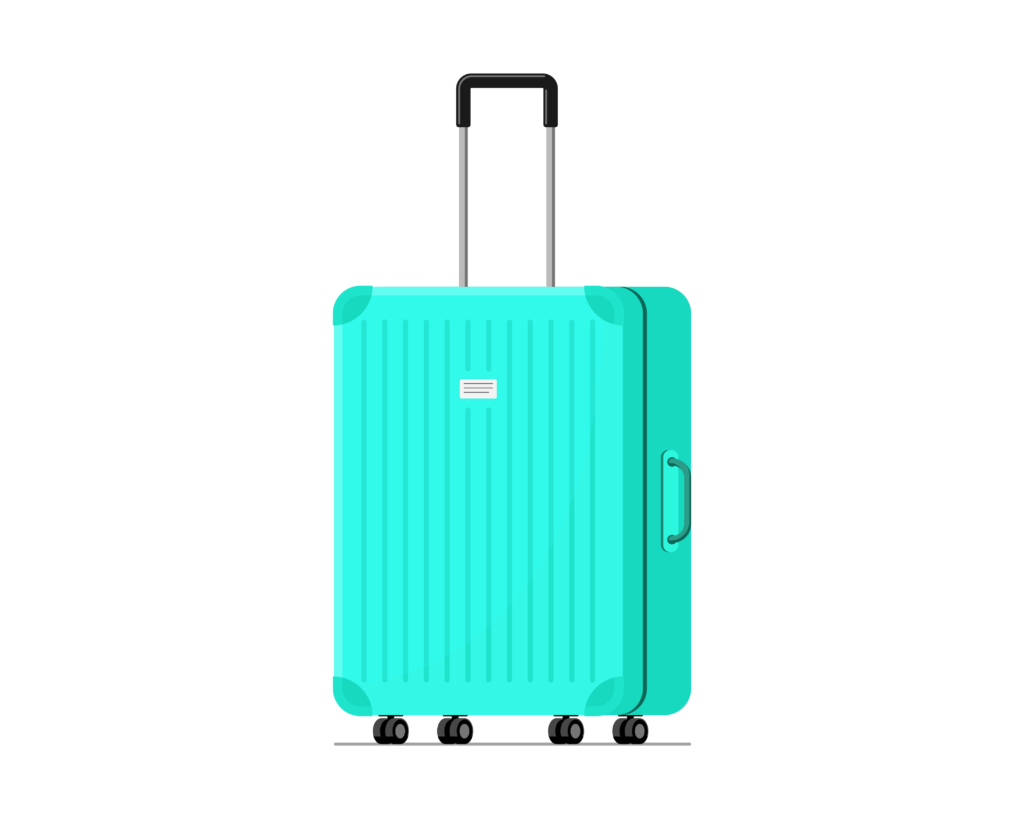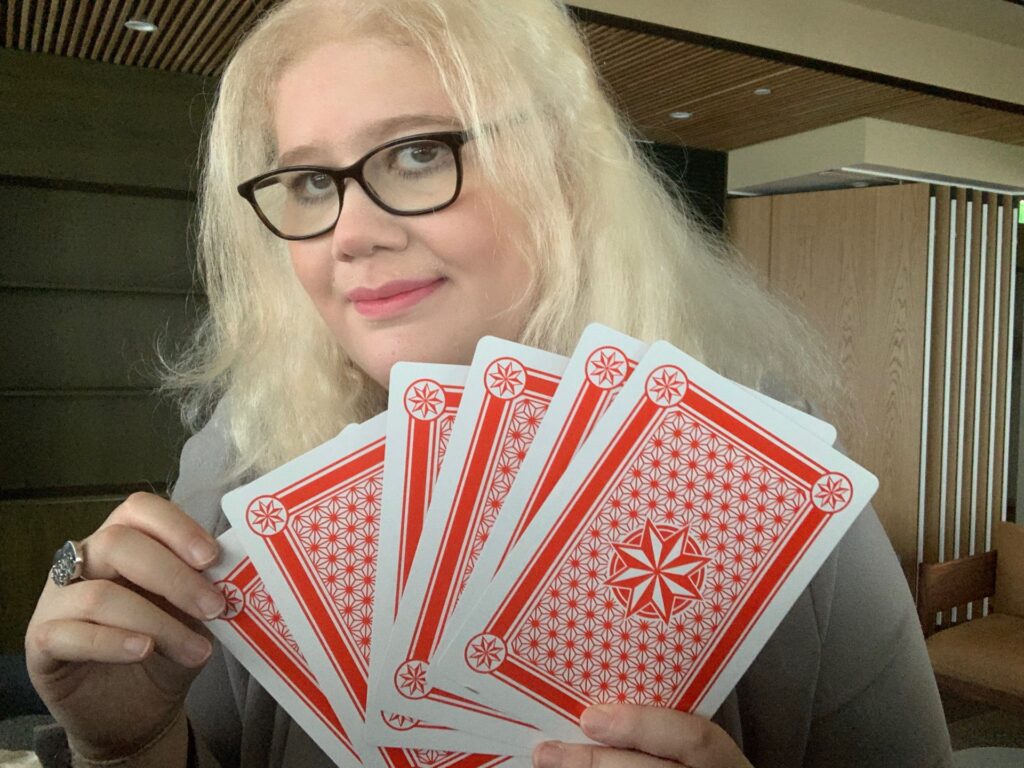Associate professor Lobna Hassan, currently researching game accessibility and gamification, from Lappeenranta-Lahti University of Technology writes about her personal experiences pursuing an academic career and moving abroad.
Following the remarkable effort the Finnish Society for Game Research is taking to increase the visibility of international academics in Finnish game research, I was encouraged to write a blog post reflecting on my 9 years journey in Finnish academia. I am writing this as a personal, relatively vulnerable account of my journey. Here, I do not share all aspects of my journey – although it is perhaps those aspects that I keep to myself that are most worthy of sharing – making this decidedly a limited, biased, and unrepresentative account of reality. I write what I write in hopes that it could be useful to other internationals who find themselves in my place, to supervisors and colleagues working with international academics, and to policymakers interested in understanding the challenges and rewards of pursuing a career in Finnish academia as a foreigner.
I write what I write in hopes that it could be useful to other internationals who find themselves in my place, to supervisors and colleagues working with international academics, and to policymakers interested in understanding the challenges and rewards of pursuing a career in Finnish academia as a foreigner.
In August 2015, I landed in Finland with 2 large suitcases, and a mountain of excitement to start my journey as a doctoral researcher at Hanken School of Economics. My head was filled with dreams of how this was about to be the start of the best chapter of my life, and the solution to all my life challenges. Isn’t Europe – after all – the land of boundless dreams for anyone coming from a developing country? There is only everything to gain and nothing to lose. The intelligent reader can sense the tone of sarcasm in between the lines here.

For this to make sense, allow me to take you a step back and tell you about my life in Egypt before I started this journey. I come from an upper middle-class family. My parents have consciously made the decision to spend on the education of their 3 children, rather than accrue substantial savings or buy expensive real estate. In the paraphrased words of my mother “I would do you more good if I leave you with proper education and a career that let you take care of yourself for as long as you are alive, than if I leave you with finite savings and riches”. My parents always knew what I could achieve beyond what I knew of myself. They provided for my comfort more than adult life can be expected to provide.
I was educated at the best schools of my country; tens of thousands of dollars were spent in the pursuit of making me the best version of myself. Me? Rather than being a consistent straight A student, in the words of Ken, I maintained a long-term-long-distance-low-commitment-casual relationship with academic excellence while growing up, I just did not care about school and school did not care about me. But that is for a professional to unpack.
Everything changed, however, when I started my undergraduate studies at the German University in Cairo (GUC) – not to drive this point home too much – it is one of the most prestigious, private universities of Egypt. I managed to get there with a partial academic scholarship, and miraculously maintained a steady streak of straight A’s. So much so that at the end of my studies, I was offered a fellowship to continue there as a teaching assistant, while working on my master’s and later on, a PhD. I worked there for 3 years, where I was regarded as an intelligent, progressive, talented, and productive educator of future generations. I lived with little to no worry over my life security or progress in life. Oh, the sweet summer child that I was.
The first thing Finnish academia asked of me was to give all of this up. In return, I was offered 18 months of starting funding for my PhD and a promise of maybe making it……sometime……if I worked fast enough and competed hard enough.

I will be the first to note my exaggeration right there. Finnish academia offered much more than that. It offered me the kind of intellectual and academic independence that I did not know could exist. It offered me many comforts in my daily life. But it took the price that that demanded. Overnight, and without me being conscious of the price I was about to pay, I became “some uneducated, oppressed immigrant from a no-name developing country university, who is probably a terrorist and does not share European ideals”. I went from living in relative social cohesion, to “so, you really don’t eat for the whole day during Ramadan? Not even water? That is idiotic”. I went from financial and life security to meticulously ensuring I do not spend more than 15€ per day and not knowing where I would be in the coming 6 to 12 months. These are the aspects of my journey in Finnish academia that I wish to reflect upon.
Identity and self-perception
– trigger warning for violence and mental health –
Identity is a precarious thing. What dictates who we are? Is it our skin color, birthplace, religion, schooling, or attitude? What is ethnicity, to begin with, and how do we really define it? I don’t know how often doctoral researchers engage with these questions as they are working on their PhD, but to say that my PhD journey and relocation initiated a major identity crisis is an understatement. That – not the research, not the severe winter – was the most challenging part of my PhD that I wish on no one.
I arrived in Finland wearing a hijab / headscarf. I independently chose to start wearing a headscarf when I was maybe 13 and had been wearing it for 10 years by the time I had arrived in Finland. It is funny how you could have a tail, yet most people will only see and comment on the hijab when they talk to you. I have experienced random incidents on the metro, on the street and at an educational institute where I was targeted for wearing a hijab, some incidents more aggressive and dangerous than others. Muslims who wear a hijab know how much it can be a magnet for harm when they are in Europe. I have experienced that myself on short visits to Germany and the UK but experiencing it on a daily basis, for an extended period of time, while living alone with no one to “protect“ or care for me if something were to really happen to me, was terror inducing. It is funny that I was afraid of something happening to me when something was already happening to me.
I gradually withdrew from society after hardly entering it. I rarely went out and often went out when I ran out of milk or to get food before Wolt took over the world. When I waited for the metro, I imagined being pushed in front of it by the people around me out of hate. When the metro arrived and I got on it and had to sit across from someone – because the metro was otherwise “full” – I would hold my breath in terror each time they put their hands in their jacket to get out a phone or a tissue paper, thinking they were getting out a knife to harm me. It is ironic that I was looked at by some as a terrorist, when this was what I was feeling.
Eventually, less than a year later, I chose to stop wearing my hijab. Was that a choice? Do we really have a choice in life? Does free will even exist? A singular decision can truly become a catalyst for a limitless dominion effect. To be clear, many people experience what I experienced and worse, yet choose to continue wearing a hijab. Many do not react to those incidents the way I did. Most – if not all – are unable to change their skin color to blend in like I metaphorically did, even if they wanted to. That is me, those were my choices and my circumstances.
There are often discussions on whether racism exists in Finland. To be fair, overt racism in the forms I just described do not happen as frequently in Finland as they do in other countries. Finland is decidedly – for me – less overtly racist than other countries. That does not deny that covert racism and microaggressions do not happen on a daily basis and that my skin color might have spared me a lot of it.
I use the story of my hijab as a symbolic story, one of significant impact on my life. I use it because self-expression through clothing, language, and many other means, are often at the core of who we are. Losing these, losing my ability to use words like “Insha’Allah” and “Alhamdulillah” that used to imbue all my speech almost automatically – especially when I did not freely choose to lose these things. It’s not just another Tuesday, it is an identity shift.
Most importantly, we shared the struggle and made each other feel less alone.
Our self-perception– for me as an intelligent woman, graduate from and teacher at a prestige institute as I wrote earlier – has a significant impact on our mental wellbeing. To add salt to the wound, I was no longer any of that to my immediate environment, or at least I was no longer seeing society and colleagues interact with me in the same way I was used to it interacting with me. I had to explain why I was here, what I was providing society, how I was not a burden on the welfare state. I had to prove my intelligence and education. This is too much pressure for any starting PhD student who can already hardly convince themselves or others of the importance and significance of their research, let alone of the importance or significance of themselves to society.
Personal and existential crises matter on a personal level, but rarely on a professional level. Rarely is an office space the right place to open up about those, and perhaps an office space is not the ideal space to open up about those. What these crises did, however, is put me in a vulnerable place. My need to establish a personal and a professional identity became a recipe for mental illness, work-life imbalance, and exploitation. Those who helped pull me out of that were myself, professionals and colleagues who opened up about their own struggles privately and publicly. We might not have shared the same challenges, although sometimes we did. Most importantly, we shared the struggle and made each other feel less alone.
Cultural and social cohesion
The decision to not wear hijab, not only made me question who I am, what I believe in, and how I lead my life, but it effectively removed me from “my” community of Muslims, immigrant, and people who might have a similar background to mine. You would think that I was happily integrated into the community of European looking people since I pass as one. Not really. To many, I was an imposter who needed to explain why they look the way they do. Someone who appears European but does not speak the language, drink the drinks, or hold a similar set of life experiences or beliefs. An alien, an imposter.
The concept of a third culture is something long documented in research on immigrants and expats, where they often grow different from the culture they come from and the culture they are at and form their own unique mix of both.
So, if this group does not physically recognize me as one of their own, and that group sees through my figurative disguise, then who am I? Where do I belong? The concept of a third culture is something long documented in research on immigrants and expats, where they often grow different from the culture they come from and the culture they are at and form their own unique mix of both. I do not aim to reflect on that here, but I want to communicate that this is a significant challenge for international academics, some more than others. In the same way that I am privileged in my career with not having a family or children, I am disadvantaged by that. When you do not even have a smaller social community to belong to, where do you belong? Do I need to write about how relatedness and belonging is important to human beings? It is one of the key factors in the self-determination theory for explaining why people are motivated to, you know, do things…. like get out of the bed in the morning.
Communities are important to everyone, more so when you just uprooted your entire life and social circle. Often, work colleagues do not necessarily become close friends and perhaps that is an important boundary. In my story, I virtually have no friends, no possibility for friends outside work colleagues. We know the hours excellence in academia demands, how much of the time left outside of work could be reasonably dedicated to personal care, life maintenance, language learning, and then finding, building, and maintaining friendships? Work communities are integral for psychological survival let alone wellbeing.
What I mean, however, are not communities that exist to check a box. I don’t mean arranging a summer day every summer, or an outing to some escape room every winter. I don’t mean wishing everyone a merry Christmas, while not noticing that it is Ramadan, Hanukkah, or Cinco de Mayo. I don’t mean taking everyone to the sauna for a meeting regardless how that could be uncomfortable for some international team members. I mean sincere effort to build friendship and common cultural grounds that feel comfortable to all as much as is reasonable to expect. I mean that when you recruit a new international academic, or one joins your immediate workplace, that you open the Wikipedia page of their country or ask ChatGPT for some information on their cultural background. I mean inclusion rather than assimilation.
Funding and temporary visa
For the entierity of my PhD in Finland (3 years), I did not own a sofa. I did have 3 old chairs without armrests that when put in a row gave a feel of a sofa, but I never used them. They were not comfortable. You see, a reasonably comfortable sofa from IKEA, cost a hundred or two of euros. Also, humans tend to sit on a sofa to watch a glossy-black square object that plays a myriad of everchanging colors and sounds, known as TV. I did not own a TV, that is another couple of hundred euros, and, well, PhD students are not exactly paid well, at least I struggled financially for some reason.
But assume I had the money, assume it grew on trees and I managed to harvest some of it when it was ripe, what would happen to that stuff in 6 months when I ran out of funding and visa? Would I even manage to sell it? How much money would I lose? Aren’t I better off saving that money for food when I run out of funding, or for – most likely – my one-way ticket home with nothing accomplished when I run out of visa?
I bought a sofa and a TV within the same month I defended my thesis. Why? That was the only point at which I felt safe enough that I would be here for longer than a year. Also, mainly because I had vowed to myself that I would live a little after my defense.

Temporary visas, low income, those are significant pressures. They impacted every little decision to my life. A colleague recently told me that they struggled with buying proper winter shoes, not a sofa, when they were in my place. These choices impact our mental and physical health. That TV? It is now constantly on as a source of background noise. I consider it a necessity in my life. I wish I had it earlier.
If I was vulnerable to exploitation and work-life imbalance because I wanted to prove myself, being on a temporary visa only lit a fire under me. I had no issue going back home – I am lucky to have a politically stable country that I can go back to – I just did not want to go back having accomplished nothing. For that, I accepted jobs, work conditions and situations that I should not have accepted and that were detrimental to my mental and physical health. I will have life-long permanent effects from those temporary pressures.
Research and career fulfillment
One of the key things that pushed me out of Egyptian academia were the in-office work hours and research options. For three years, I had to spend 8 hours / 5 days a week – and exactly 8 hours to the minute – in an office. It did not matter that it was summer, and no student was on campus, it did not matter that I can be as productive, or even more productive at home. Research of games and gamification – at that time – was also an impossibility. If that was the direction of research I wanted to pursue, and it was, I had a problem.
In Finland, I was told during one of my first supervisory meetings that I could literally do whatever I wanted. I was given an office but not an expectation to be at it most of the time, let alone all the time. Initially, the feeling of scientific freedom was overwhelming. What do you mean I could do whatever I want? Would you, per chance, happened to know what is it that I want? No? No niiiiiin.
No niiiiiin.
When I eventually found my footing, I really found my footing. Within 2 years of being here, I went so off the rails in finding my footing that I started research on Harry Potter and gamification. That research went from a “joke” side project to a comprehensive line of research I was joined in on by a doctoral researcher. This experience is not unique to me. The ability to pursue random, side projects led to the birth of transformational research for many academics I know. It is a privilege we are lucky to experience.
As some of the readers know, I am now associate professor (tenure track) of sociotechnical transitions in services at LUT University in Finland. I currently lead SIA-lab (like the artist Sia), a research group of – at the time of writing – 7 doctoral researchers and 1 postdoc. We research game accessibility and different gamification topics. I achieved this in record time and indeed I was rewarded for the effort I put in.
Finland offered me more than I could have expected, more than I knew existed. But it was not an offer on a silver platter and it involved personal and social sacrifices that I did not know I needed to make. Getting where I am took work, intelligence, strategy, mental health and a gallbladder. Most importantly, it took luck, supportive colleagues, friends, and divine intervention. International academics who choose to stay here do so because we know what here has to offer. Some of us are luckier than others to get to bright days. I don’t know if I wish the journey to have been different. Certainly, there are parts of it that I wish to improve for anyone who will be in my place, but, and I realize how cheesy this sounds, I am the more complex, introspective, gallbladder-less person that I am because of it. Self-development does not come free, and it is a privilege and a pleasure for me to have experienced that.

Lobna Hassan is Associate Professor (tenure-track) of sociotechnical transitions in services, at Lappeenranta-Lahti University of Technology, Finland. She is also a member of the Council of Europe’s digital game culture workgroup. Dr. Hassan leads SIA Lab: a research group focused on games, gamification, accessibility, and inclusion of people with disabilities. Her research has received funding from various organisations, notably: the Finnish Foundation for Economic Education (Liikesivistysrahasto) and the Finnish cultural foundation (Suomen Kulttuurirahasto). Her work and publications can be found at http://lobnahassan.com and the work of SIA Lab at http://sia-lab.com. You can also follow her on TikTok @proflobnahassan !